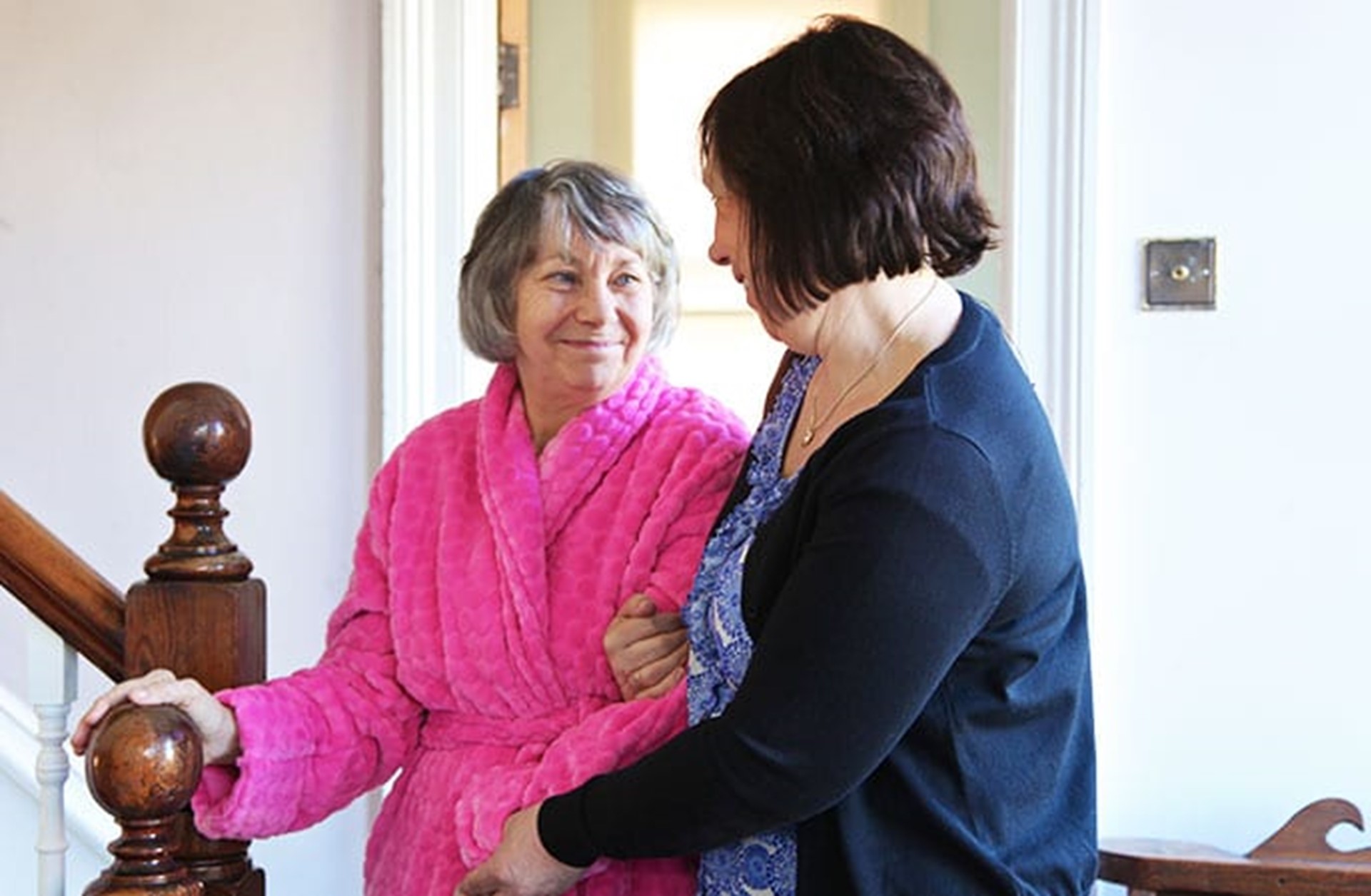When is the right time for live-in care?
Published: 01/03/2019
When is the right time for live-in care?
I have been managing director of Right at Home for the last five years, writes Tim Haigh, and been a champion of live-in care since day one. But sometimes I need to remind myself how confusing it can be for someone who has not been immersed in homecare to understand the options available to them and make a decision that will keep their loved one safe and happy as they get older and struggle to take care of themselves. That decision often needs to be taken quickly and can be life changing, not only for the person receiving the care but for the family and friends around them as well.
What are the care options available?
When looking for care for an elderly relative, the main options to consider are: hourly care, live-in care and residential care. Right at Home offers two of those services:
- Hourly homecare – regular home visits from one of our CareGivers to give practical and emotional support. This can vary from one visit a week up to a few times a day and even over-night stays. It may be for some companionship, to help with a bit of shopping or it may be more specialised support, for example our Dementia DELAY Programme, based on industry research, where one of our specially trained CareGivers will deliver a tailored package of care designed to delay the progression of dementia.
- Managed live-in care – one of our CareGivers lives in your home and provides support with any aspect of daily living that is needed.
The majority of our clients come to us needing hourly homecare. For many, a few hours a week – together with the support of family and friends – is all the support they need but some clients progress on to needing a bit more support and then switch to live in care.
When should we switch from hourly care to full time care?
One of the many tough decisions that family members face is when to make the switch from hourly care to full time care.
If you are finding that any of the following ring true, then it might be worth switching to live-in care:
- Needing more than five hours of homecare a day or additional support during the night – it may make financial sense to consider live-in care.
- The person is not safe on their own – full time care can offer reassurance and peace of mind.
- The person needs support at irregular times during the day – planned, regular home care visits do not meet the individual’s needs.
If you feel that the time is right for residential care, then this should be considered when or if:
- The house does not have room to accommodate a live in carer
- The needs of the person are so great that one live in CareGiver would not be sufficient
- The person values the social side of residential care over the independence of care in their own home
Should we opt for live-in care or residential care?
Choosing between live-in care and residential care is a big decision for the people involved. Below is a table that compares the benefits of each option.
| Residential Care | Live-in Care |
| There will be plenty of other residents with whom to socialise | You can keep up with your current social circle |
| You can release the equity in your home | You can stay living in your own home |
| A team of carers support your needs | One to one support from your dedicated Live in CareGiver |
If you are struggling to choose between residential care and live in care then a good option could be to try live-in care for a few weeks to see how it goes. It much easier to change your mind about live in care than it is about residential care.
Full time care and dementia
There are some great specialist dementia care homes out there if and when that stage becomes necessary but I strongly believe that it is in the individual’s best interests to stay living at home for as long as is safe and practical. Short term memory loss is one of the most common symptoms of dementia and, although it may be hard to believe, the impact of moving into a care home (or even moving house) is that they may never be able to remember where they are again. This can be quite distressing for family members to see when, up until that stage, the person living with dementia has been coping reasonably well because they can remember their house and local surroundings well from earlier years.
So it can be a very difficult decision and sometimes there is no clear “right decision”; you just have to follow what you feel is the best option for all concerned. Do remember that if something is not working then there is always the option to change it.
If you need more information on this important topic, you can contact me on [email protected] or 01372 705785. I’ll always be happy to advise.

